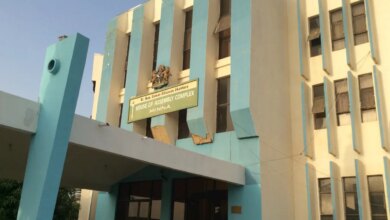Establishment of Rice Development Board must be given urgent attention

THE Institute for Fiscal Studies (IFS), an Accra-based policy think tank, has made a case for the establishment of a Rice Development Board (RDB) to oversee the development of the rice sector.
The proposal deserves urgent attention not only from the government, but also stakeholders in the rice sector, and international development partners committed to agricultural growth.
According to the Institute, the creation of the RDB has become necessary due to the persistent poor performance of rice production, largely caused by limited government involvement in addressing key challenges in the sector.
In its recent study titled “Increasing Importation of Rice in Ghana: Can the Country Transform its Fortunes in the Rice Sector?” the IFS identified several factors hindering the growth of the rice sector.
These include low fertiliser application, the use of uncertified seeds, limited mechanisation, inadequate irrigation facilities, heavy reliance on manual labour, and high costs of milling and processing.
The IFS recommends that the proposed RDB oversee all government activities related to rice production, milling, and storage. It should also provide technical support to actors in the rice value chain, covering production, distribution, and marketing, both domestically and for export.
Additionally, the IFS suggests the Board should spearhead efforts to establish local fertilizer factories to ensure affordable and adequate supply for farmers.
Encouragingly, despite the challenges identified, the IFS believes Ghana has the potential to become a net exporter of rice if these issues are addressed and the government takes a leading role in the sector.
This means the country could produce enough rice for domestic consumption and export the surplus, earning valuable foreign exchange and strengthening the local currency.
Ghana has the right weather conditions, fertile soils, abundant water resources, and vast tracts of arable land suitable for all-year-round cultivation.
Currently, national rice consumption stands between 1.4 and 1.7 million metric tonnes annually, while domestic production is only 600,000 to 800,000 metric tonnes.
The resulting deficit is covered by imports, which place a heavy burden on the economy. It is estimated that Ghana spends over $500 million annually on rice imports.
The Ghanaian Times fully supports the IFS’s proposal for active state participation in rice cultivation.
The initiative is long overdue, especially given the enormous amount of foreign exchange spent on importing a product that can be produced locally.
Rice has become a major staple food, particularly among urban populations, and its consumption continues to rise steadily.
As has been done for cocoa, cashew, and palm with the establishment of bodies such as the COCOBOD and the Tree Crop Development Authority, creating a similar board to oversee rice production is both reasonable and necessary.
Ghana, as a member of the Coalition for African Rice Development, has already developed the National Rice Development Strategy I and II (2008–2018 and 2019–2030 respectively), which outline the steps required to boost rice production.
The IFS study clearly highlights the sector’s challenges and offers practical recommendations for policy intervention.
The government can build upon these insights to implement the right measures to transform the rice industry.
Furthermore, lessons can be drawn from countries such as Vietnam and Thailand, which are now global leaders in rice production, compared to Ghana.
🔗 Follow Ghanaian Times WhatsApp Channel today. https://whatsapp.com/channel/0029VbAjG7g3gvWajUAEX12Q
🌍 Trusted News. Real Stories. Anytime, Anywhere.
✅ Join our WhatsApp Channel now! https://whatsapp.com/channel/0029VbAjG7g3gvWajUAEX12Q






